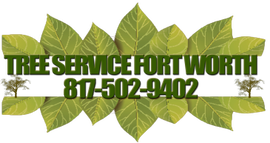Hypoxylon Canker Treatment Services in Lakeside, TX
The splendid town of Lakeside, Texas, recognized for its bountiful green landscape, is faced with an increasing problem that puts its tree population at risk - the rapid growth of Hypoxylon Canker.
- Unveiling Hypoxylon Canker: This lethal fungal disease, spread by Hypoxylon atropunctatum, imperils various species of trees, potentially transitioning Lakeside's green spaces into fading patches of wilted foliage.
- Vulnerable Tree Species: Even though Oak trees are customarily afflicted, Hypoxylon Canker does not discriminate, affecting multiple tree species and thus endangers the rich tree diversity in Lakeside.
- Identifying the Disease: Quick detection of Hypoxylon Canker is integral to control its spread. Symptoms such as thin crowns, discolored bark, and the peeling off the bark to expose a spore layer provide vital clues.
- Disease Propagation: Factors like poor soil conditions, physical injury, and drought can push trees toward this disease. The primary mode of spreading is airborne fungal spores.
- Impact on Lakeside's Trees: Infected trees suffer progressive decay, ultimately succumbing to this disease. This not only affects the visual appeal but also disrupts the ecological balance of Lakeside's green spaces.
- Mitigation and Management: With no cure at hand for Hypoxylon Canker, the focus is on preventive and containment measures such as regular tree maintenance, alleviating environmental stress, and swift removal of infected trees and debris.
- Contribution of Arborists: Arborists in Lakeside form the frontline defense against Hypoxylon Canker. Their timely intervention, coupled with technical insights, can help curb the damaging effects of this deadly disease.
- Prevention Tactics: Regular watering, proper fertilization, professional pruning, and safeguarding trees from mechanical injuries can significantly bolster a tree's resilience to Hypoxylon Canker.
- Necessity of Public Awareness: The role of Lakeside residents is influentially vital in controlling Hypoxylon Canker. An informed and vigilant community can greatly contribute to early detection and containment of the disease.
Challenged by the threat posed by Hypoxylon Canker, Lakeside must put up a determined fight to protect its leafy landscapes. With a balanced strategy encompassing mobilized community involvement, skilled arborists, and increased care for trees, it is feasible to relieve the impacts of the disease and preserve the picturesque beauty and essential ecology of Lakeside.




